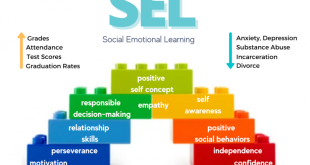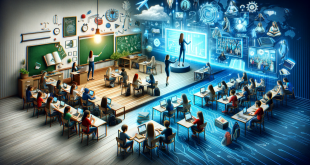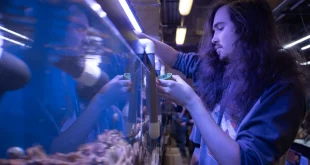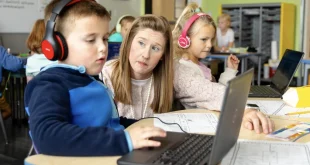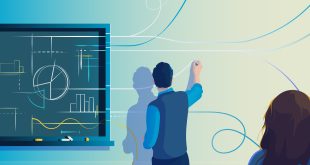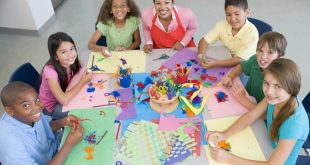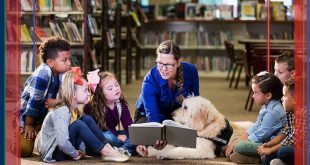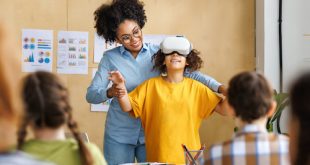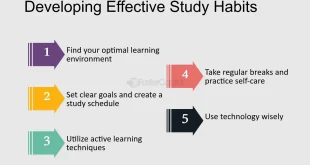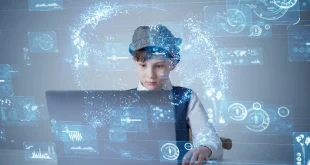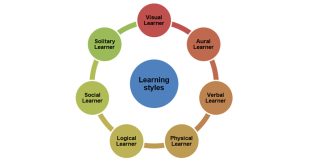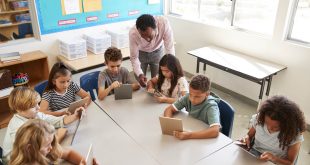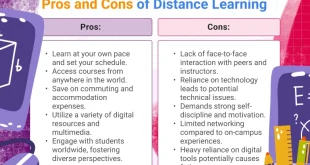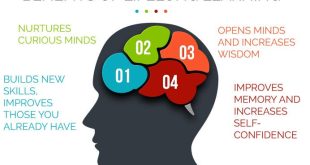Social-Emotional Learning (SEL) refers to the process through which individuals, particularly children and adolescents, develop essential skills for managing emotions, setting goals, showing empathy, establishing relationships, and making responsible decisions. SEL is increasingly recognized as a crucial aspect of education that supports not only academic success but also personal and …
Read More »The Future of Hybrid Learning
Hybrid learning, which combines traditional face-to-face instruction with online learning, has gained prominence in recent years, particularly due to the COVID-19 pandemic. As educational institutions continue to adapt, hybrid learning is poised to evolve further. This overview explores the future of hybrid learning, its benefits, challenges, and potential innovations. Key …
Read More »A Marine Science Program in a Surprising Place Shows Students New Career Options
In an unexpected location, a marine science program is opening doors for students to explore diverse career opportunities in the field of marine conservation, research, and technology. This innovative initiative not only enhances students’ understanding of marine ecosystems but also equips them with the skills needed for various careers related …
Read More »Students Want to Learn More About Careers: Will High Schools Step Up?
As students progress through their education, many express a growing interest in understanding career options and the skills needed to succeed in the workforce. However, there is often a disconnect between students’ desires for career-related education and the resources provided by high schools. This article explores the importance of career …
Read More »Preparing for the Workforce Can Start as Early as 1st Grade: What It Looks Like
The idea of preparing students for the workforce may seem premature for first graders, but early exposure to essential skills and concepts can lay a strong foundation for their future careers. This article explores how workforce preparation can be integrated into the curriculum and activities for young learners, fostering skills …
Read More »The High School Handoff: Transitioning to Higher Education
The transition from high school to higher education is a critical juncture in a student’s life. Known as “The High School Handoff,” this period involves not only academic changes but also significant shifts in social, emotional, and personal development. Understanding this transition can help students, parents, and educators facilitate a …
Read More »Most Teachers Believe Public Views of Them Are Unfavorable
The perception of teachers in society is a topic of considerable debate and discussion. Recent surveys and studies indicate that a significant number of educators feel that the public views them unfavorably. This sentiment raises important questions about the factors influencing public opinion and the implications for the teaching profession.The …
Read More »The Importance of Arts Education in Schools
Arts education plays a crucial role in the holistic development of students, providing them with essential skills that extend beyond the realm of creativity. As schools increasingly emphasize standardized testing and core academic subjects, the significance of arts education often gets overshadowed. However, a robust arts curriculum is vital for …
Read More »The Role of Parents in Their Child’s Education
The involvement of parents in their child’s education is a critical factor that can significantly influence academic success and personal development. From the early years of schooling through adolescence, parents play a vital role in shaping their children’s attitudes towards learning, fostering essential skills, and providing emotional support. This article …
Read More »The Benefits of Extracurricular Activities for Student Development
Extracurricular activities play a vital role in the holistic development of students. These activities, which occur outside the traditional academic curriculum, encompass a wide range of pursuits, including sports, music, drama, student government, and community service. Engaging in extracurricular activities offers numerous benefits that contribute to students’ academic success, personal …
Read More »Creating an Inclusive Classroom Environment for All Students
In today’s diverse educational landscape, creating an inclusive classroom environment is essential for fostering a sense of belonging and ensuring that all students can thrive. Inclusion goes beyond simply accommodating students with disabilities; it encompasses recognizing and valuing the varied backgrounds, abilities, and perspectives that each student brings to the …
Read More »The Future of Education: Trends Shaping the Classroom of Tomorrow
The landscape of education is continuously evolving, driven by advances in technology, changes in societal needs, and a deeper understanding of how students learn best. As we look to the future, several key trends are emerging that promise to reshape the classroom experience for students and educators alike. This article …
Read More »How to Support Students with Learning Disabilities
Supporting students with learning disabilities is essential for fostering an inclusive and equitable educational environment. Learning disabilities can affect a student’s ability to read, write, calculate, or process information, leading to challenges in academic performance and self-esteem. As educators, parents, and peers, we play a crucial role in providing the …
Read More »Tips for Effective Study Habits and Time Management
In today’s fast-paced world, effective study habits and time management skills are essential for academic success. With numerous distractions and an overwhelming amount of information to process, students often struggle to maintain focus and stay organized. Developing strong study habits and mastering time management can significantly enhance learning outcomes and …
Read More »The Role of Technology in Modern Education
In recent years, technology has profoundly transformed the educational landscape, reshaping how students learn, teachers instruct, and institutions operate. The integration of digital tools and resources in education has not only enhanced accessibility but has also made learning more engaging and effective. This article explores the various roles technology plays …
Read More »Understanding Different Learning Styles: What Works Best for You?
In today’s diverse educational landscape, recognizing and understanding different learning styles is crucial for maximizing student engagement and effectiveness. Each individual absorbs and processes information differently, and tailoring learning approaches to these preferences can enhance comprehension and retention. This article explores various learning styles, their characteristics, and how you can …
Read More »Innovative Teaching Methods: Engaging Students in the Classroom
In an increasingly complex world, the traditional methods of teaching are often inadequate to engage today’s diverse student population. As educators strive to prepare students for the challenges of the future, innovative teaching methods are becoming essential. These approaches not only enhance engagement but also foster critical thinking, creativity, and …
Read More »The Benefits of Online Learning: Pros and Cons
In recent years, online learning has gained immense popularity, offering an alternative to traditional classroom education. The rise of digital technologies and the internet has transformed how we access knowledge and skills, making education more flexible and accessible. However, like any educational method, online learning comes with its advantages and …
Read More »How to Choose the Right Educational Path for Your Career
Choosing the right educational path for your career is a significant decision that can influence your professional trajectory, job satisfaction, and overall life fulfillment. With the vast array of options available—ranging from traditional four-year degrees to vocational training and online courses—navigating this landscape can feel overwhelming. This article provides a …
Read More »The Importance of Lifelong Learning in Today’s World
In an era characterized by rapid technological advancements, shifting job markets, and an ever-evolving global landscape, the concept of lifelong learning has emerged as a vital necessity. Lifelong learning refers to the continuous, voluntary, and self-motivated pursuit of knowledge for personal or professional development. As we navigate the complexities of …
Read More »